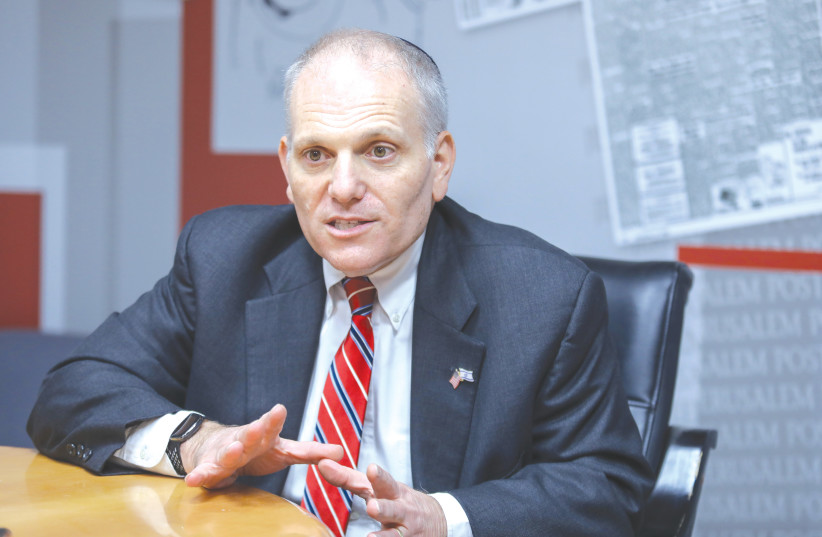Israel needs to better engage and make its position clear to its friends and family around the world, the CEO of the Conference of Presidents of Major American Jewish Organizations William Daroff told The Jerusalem Post on Thursday.
“There needs to be a lot more explaining the dynamic for American ears,” he said on the proposed judicial reforms. “Your system is different from ours. And, so, it is difficult to understand, even for those of us who’ve spent time trying to figure it out.”
On the backdrop of an intense period of controversial proposed judicial, financial and religion and state reforms, the COP is preparing to hold its annual conference in Jerusalem at the end of the month.
“Most observers from inside and outside of Israel acknowledge the need for some change and reform. Maximalist support for either wholesale changes, or no changes at all, ignores what is clearly a complicated and nuanced issue,” he said.
“Either way, however, Israel needs to better engage, and better make its position clear to its friends and family around the world. The Conference of Presidents serves as an important interlocutor in this conversation, and many others, between the world’s two largest Jewish communities.”

Daroff said the COP's more than 50 member organizations have diverse positions on the issues.
“We’ll certainly be discussing these issues more from the vantage point of their impact on American Jewry,” he said.
Regarding the judicial reforms, Daroff said his research on the topic has made it clear that “it’s muddled, not black and white.”
“There is a middle ground where there could be some reform that is necessary,” he said, adding that “those who say that the whole system must be turned upside down are ignoring the nuance, as are those who say that the [legal] status quo must stay as the status quo remains are also missing the nuance.”
The COP will hear from different perspectives of judicial reform
During the COP visit to Israel, member organizations will hear from different perspectives on the reforms. Speakers will include President Isaac Herzog, Prime Minister Benjamin Netanyahu, Foreign Minister Eli Cohen, Diaspora Affairs Minister Amichai Chikli and US Ambassador to Israel Tom Nides.
As published by the Post on Wednesday, all of the speaking ministers are members of the Likud Party, headed by Netanyahu. The Post learned that none of the other five coalition parties was invited to speak.
Leaders of many American Jewish organizations have confidentially said over the past few months that they won’t meet with members of the Religious Zionist Party, Otzma Yehudit and Noam due to statements made regarding issues of religion and state, criticism of the Reform and Conservative movements and attitudes towards LGBTQ and Arab minorities.
Asked why COP won’t meet with members of these parties, Daroff did not agree that it was a principle, rather that the positions that the members of these parties hold aren’t as relevant to their work.
“We’ve invited many MKs to an annual lunch with the Knesset,” Daroff said. “We are also going to be meeting with two committees – the Diaspora, Aliyah and Integration Committee and the Foreign Affairs Committee. During these meetings there will be a good representation of the mosaic that makes up the Knesset.”
Daroff said repeatedly that he believes in holding meetings that aren’t published in the media in order to create a safe environment for a proper exchange of opinion.
“We are having, and will continue to have private meetings and discussions with everybody; with members of the government, as well as with members of the opposition,” he said.
Regarding Israel-US relations, Daroff said: “I believe that the two governments are in a good place as the new relationship takes hold.”
Asked why the COP met with Yair Lapid when he was finance minister in 2014 but not with RZP chairman Bezalel Smotrich in 2023, Daroff responded that he wasn’t CEO of the organization in 2014.
“Since I’ve been CEO of the conference, we have not met with a finance minister or had them speak to the conference mission.”
He added that “we’re meeting with fewer podium speakers and more going out and about.”
“Our focus is on the 70% to 80% of issues that the Jewish organizations agree on, because I believe that that’s a way to cut through the divisiveness and to bring people together,” Daroff concluded.
